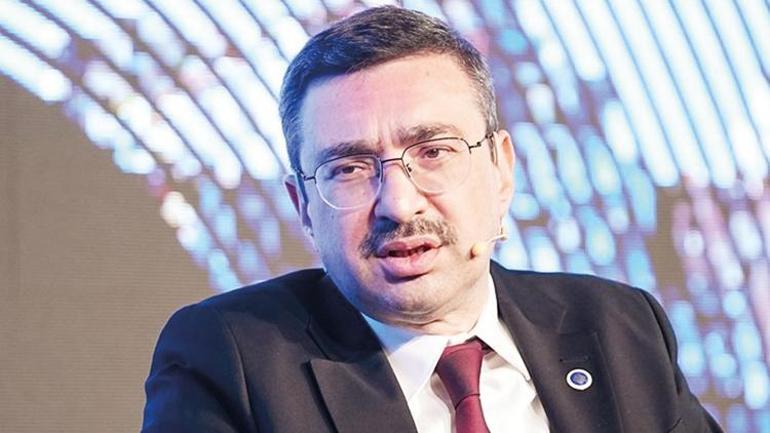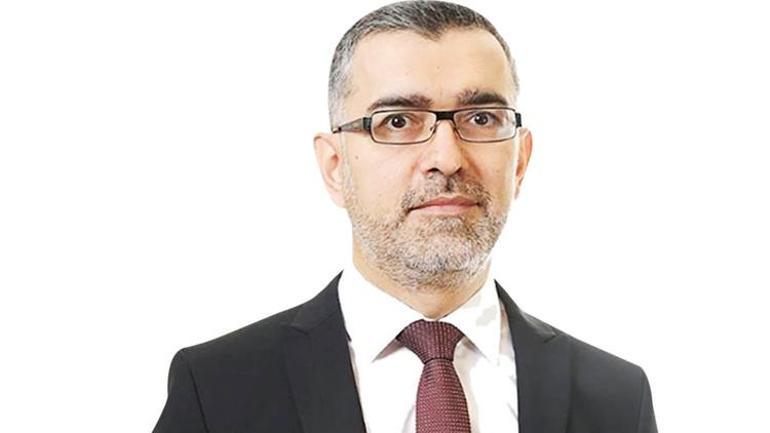Neşe KARANFİL
Created Date: November 16, 2024 04:00
The 2025 budget discussions of the Ministry of Treasury and Finance were held in the Parliament yesterday. Minister Şimşek drew attention to increasing purchasing power when he said, “We will do whatever is necessary to ensure price stability.” Şimşek gave the growth rate this year as 3.5 percent and said that they foresee a relative recovery in the economy starting from the second half of 2025.
Minister of Treasury and Finance Mehmet Şimşek emphasized that they will do whatever is necessary to ensure price stability and said, “Because we can permanently increase the purchasing power of farmers, tradesmen, workers, minimum wage earners, civil servants, retirees, that is, all our citizens, and improve income distribution only with price stability.” Noting that they will continue to strengthen tax justice with tax policies, Şimşek said, “We will continue to prioritize healing the wounds of the earthquake, as in the last two years. “Discipline will be essential in all other expenditures,” he said.
HE DRAW ATTENTION TO THREE BASIC ELEMENTS
In his budget presentation to the GNAT Plan Budget Commission, Minister of Treasury Şimşek stated that ensuring price stability, which is the main purpose of the program implemented, requires a long-term effort, and said, “We expect three basic issues to be decisive in disinflation in the coming period,” and listed these three elements as follows: “First, The lagged effect of monetary policy on inflation will be seen more clearly over time. Secondly, the decrease in the budget deficit to national income ratio in 2025 will have a negative fiscal impact. Thirdly, we will determine managed and directed prices in line with the inflation target, to the extent budgetary means allow.” Stating that growth was moderate and more balanced during the disinflation process, Şimşek said that they expect growth to be 3.5 percent this year. Şimşek said, “With the decline in inflation and supportive global conditions, we foresee a relative recovery in economic activity as of the second half of next year.”
INSPECTIONS WERE MADE IN 145 INSTITUTIONS
Şimşek reminded that they have implemented the Public Sector Savings and Efficiency Package in 2024. Stating that 145 public institutions and organizations were audited in this context, Şimşek said, “We will share the audit reports with the Presidency and relevant public administrations in accordance with the law.” Şimşek stated that, among the vehicles used with service purchases in the post-circular period, they reduced the number of vehicles whose contracts had expired by 15 percent.
INDIRECT TAX IS NOT HIGH
Şimşek also touched upon the frequently criticized indirect tax burden and stated that the opinion that the burden is too high is not correct. “The main problem in our tax system is that direct taxes are not at a sufficient level,” said Şimşek, and gave the following information: “The general VAT rate in our country is 20 percent. With this rate, we are the sixth country with the lowest tax rate among EU countries. Our effective VAT rate is approximately 15 percent, with the discounted VAT rate in practice in many areas such as basic food, education, health, clothing and social housing. The ratio of taxes on income and earnings to national income is 5.8 percent. With this rate, we are the third country with the lowest tax burden among OECD countries.”
644 MILLION TL BLOCKED IN ILLEGAL BETTING
Stating that they will continue to fight against illegal betting and gambling in order to prevent the laundering of crime proceeds, Şimşek said, “The transaction amount we blocked regarding illegal betting in 2023 is 644 million lira. “In addition, in line with the reports prepared by MASAK, the courts decided to confiscate approximately 30 million lira,” he said.
55.9 BILLION TL FUND RECEIVED FROM 31 COMPANIES THAT HAD PUBLIC OFFERINGS
Capital Markets Board (CMB) Chairman İbrahim Ömer Gönül was among those who made a presentation at the GNAT Planning and Budget Commission yesterday. Pointing out that significant progress has been made recently in terms of the development of the capital market, Gönül said that investors’ interest in the markets has increased. Gönül said, “As of the end of October 2024, 31 companies whose public offering was completed have provided a total of 55.9 billion lira of funding from the market.”

THERE ARE 36 MILLION INVESTORS
Gönül stated that a total of approximately 36 million citizens, 7 million in stocks and 5.4 million in investment funds, are direct or indirect investors in the capital markets through bonds, promissory notes, Private Retirement System and similar instruments, and said:
“In 2023, 54 companies made public offerings worth a total of 79.3 billion liras. Our country ranked 10th in the world and first in Europe according to the size of funds raised from public offerings in 2023. As of the end of October 2024, 31 companies whose public offerings were completed have raised a total of 55.9 billion lira from the market. Our companies issued 888.7 billion lira of debt instruments and lease certificates in 2023. As of the end of October 2024, 1.6 trillion lira of debt instruments and lease certificates were issued. “The size of venture capital investment funds increased to 192.3 billion liras, and the asset size of venture capital investment partnerships reached 41.1 billion liras.”
Gönül pointed out that the amount of assets managed by securities investment funds reached 3.7 trillion lira as of the end of October, and explained that there are currently 692 companies registered with the Board. Pointing out that 570 of the companies in question are traded on the stock exchange, Gönül stated that the total market value of the companies reached 12 trillion 163 billion lira.
‘BANKING GROWED BY 46 PERCENT ANNUALLY’
Yakup Asarkaya, Deputy Chairman of the Banking Regulation and Supervision Agency (BDDK), stated that the banking sector recorded a growth of 46 percent in a one-year period and said, “The sector will reach a size of 80 percent of the Gross Domestic Product with an asset size of 29.7 trillion lira as of August 2024.” he said.

Asarkaya made a presentation at the GNAT Planning and Budget Commission within the scope of the 2025 budget negotiations. Emphasizing that the Turkish banking sector is one of the most important stability elements of the country with its strong financial structure and international reputation, Asarkaya said that the first condition for the sector to fulfill its functions effectively is financial soundness.
Drawing attention to the inspections carried out, Asarkaya said:
“The NPL ratio of loans, liquidity indicators, foreign currency position and leverage ratio remain at reasonable levels; The capital adequacy ratio is at 17 percent as of August 2024, well above the minimum level stipulated by international standards. This strong capital structure, nourished by sustainable profitability, is capable of protecting the sector against shocks in the future. “As of August 2024, the sector’s asset and equity profitability rates were 2.2 percent and 27.8 percent, respectively, and these rates are higher than the averages of many countries.”
Source: bigpara.hurriyet.com.tr


